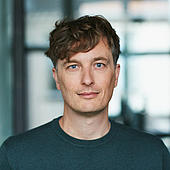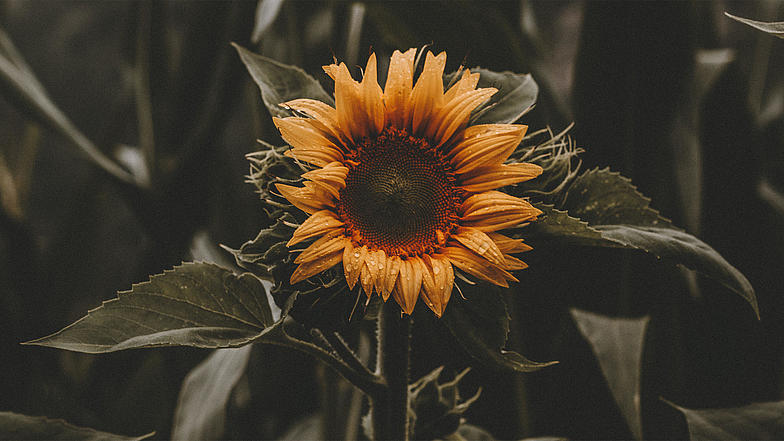The war against Ukraine will also have consequences for the global food supply. Malnutrition and hunger could increase.
Missile strikes, endless columns of tanks, streets buried under rubble, hundreds of thousands people displaced: the images of war are staggering. Images that we in Europe no longer thought possible. Images that mark a major upheaval in the European peace order - triggered by the brutal invasion of Ukraine by Putin's troops.
The foodwatch team's thoughts are with the people in Kiev and Kharkiv, in Odessa and Mariupol - everywhere where Russian missiles and guns threaten their lives. We mourn with them for their loved ones. And we are deeply impressed by the courage with which so many are defying the attacks. We also pay the utmost respect to those who are protesting on Russian streets against the invasion.
This war must end. And it must end now. The Russian government must stop all attacks and withdraw its troops.

War brings immense suffering. It always has. In the case of the Russian attack on Ukraine, this applies even more - because it also endangers the global supply of food.Managing Director of foodwatch Germany
A threat to global food supply
The war means above all suffering for the people in Ukraine. But the Russian attack has repercussions worldwide and endangers the global food supply:
- The fertile soils of Russia and Ukraine together provide a quarter of global wheat exports. Every second grain that feeds North Africa and the Middle East comes from one of the two countries. Ukraine alone supplies nearly half of the world's traded sunflower oil. In total, Russia and Ukraine export 12 per cent of the calories traded globally.
- Destroyed railway lines and mined ports will block these exports for the time being - just like the tough sanctions with which the West is rightly trying to slow Putin down. In the coming weeks, the fighting will also put the sowing of crops at risk.
- The global agricultural system depends on synthetic fertiliser. Russia produces a large part of it. Individual African states such as Chad, Niger or the Central African Republic obtain more than 90 percent of their artificial fertiliser from Russia.
- Hunger is already rampant in parts of the world. The pandemic, expensive energy and droughts have driven up food prices. They will now continue to rise; the price of wheat is expected to increase by up to 30 percent. Food will thus become scarce and unaffordable for even more people. The consequences: more malnutrition, more hunger.
How you can help
We all have little influence on this looming crisis. In the short term, we can only support those who are trying to alleviate the hardship in Ukraine and hunger worldwide. At “UNHCR” you will find information on how you can help with your donation. Every donation matters!
What must happen now
Western governments must not only look at the consequences of war and sanctions for their own countries. They must also fight global hunger. Food shortages can, in the worst case, fuel new conflicts. If the traffic light coalition invests in rearmament now, it should also be able to raise money to invest in global food security.
In the medium term, the question then becomes: How can we stabilise peace in Europe again? How do we make ourselves independent of Russia's abundance of resources? And how must the global food system change to make it more crisis-proof?
Managing arable land differently
First of all, it is important to note that the food supply in the EU is not threatened by shortages. However, we import some of our feed for animal husbandry from Ukraine and Russia and therefore this will become much more expensive.. This brings us to a fundamental problem: we have too many animals - and they are eating food that people could eat. In order for a slaughtered pig to provide us with 1 calorie, the farmer must first fatten it up with 3 calories of plant food.
Almost 65 per cent of the agricultural land in EU does not provide food for us, but feed for animal production. In addition, there are massive imports from other regions of the world, all of which flow into our livestock farming - while they compete with local food production. So the equation is basically that fewer animals = more food security.
The same applies to energy crops such as rapeseed for bio-fuel and biogas plants: they too take away the space for food to grow. It has been proven that they do more harm to the climate than good. We do not have too little arable land in Europe - we have to manage it differently.
And when it comes to dependence, we also have to talk about artificial fertiliser. Our highly industrialised agriculture depends on Russian fertiliser. European countries import considerable quantities of artificial fertiliser from Russia. Only if we say goodbye to the intensive way of farming and rely on natural fertilisers and crop rotations can we really free ourselves from this dependency.
For crisis-proof, sustainable agriculture
If we want to become more crisis-proof and reduce our dependence on Russian resources, then, in addition to the much-discussed energy transition, we also need a real agricultural transition. The many billions in subsidies from Brussels must finally flow into sustainable agriculture.
As difficult as this is, for the moment we can only hope that the war will end soon. In the past few days, hundreds of thousands of people have demonstrated in Berlin, Amsterdam and Paris to demand peace. More demonstrations will follow. In the coming weeks, let us together continue to show Putin what we think of his warmongering.
And even after that, we must continue to get involved. foodwatch will continue to fight to ensure that food is not only healthy and honest, but that our agriculture is also crisis-proof and sustainable.
